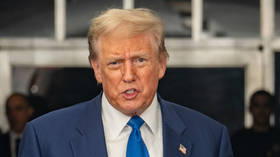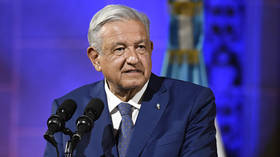Trump’s Plan to Take Syrian Oil Slammed as ‘Clear Violation of International Law’ and ‘Imperial Looting’

President Donald Trump announced plans to violate several longstanding tenets of international law on Sunday morning during a controversial press conference celebrating the death of Islamic State leader Abu Bakr al-Baghdadi, legal experts say.
“We are leaving soldiers to secure the oil,” Trump said. “And we may have to fight for the oil. Maybe somebody else wants the oil, in which case they have a hell of a fight.”
“The oil is so valuable,” Trump added later during the press conference. “For many reasons. It fueled ISIS: number one. Number two: it helps the Kurds. Because it’s basically been taken away from the Kurds. They were able to live with that oil. And number three: it can help us because we should be able to take some also. And what I intend to do, perhaps, is make a deal with an Exxon Mobil, or one of our great companies, to go in there and do it properly. Right now it’s not big–it’s big oil underground. But it’s not big oil up-top. Much of the machinery’s been shot and dead. It’s been through wars.”
The 45th president then reminisced:
I want to bring our soldiers back home–but I want to secure the oil. If you read about the history of Donald Trump, I was a civilian. I had absolutely nothing to do with going into Iraq and I was totally against it. But I always used to say, If they’re going to go in–nobody cared that much but it got written about–if they’re going to go in, I’m sure you’ve heard the statement because I’ve made it more than any human being alive. If they’re going into Iraq, “Keep the oil.” They never did.
President Trump tells the truth for once–it’s all to “Protect the Oil” pic.twitter.com/mvTRHXpbr0
— Jordan (@JordanChariton) October 27, 2019
Trump argued Iraq should have paid America back for the invasion that decimated the country and killed up to 500,000 innocent people.
“If you did that,” he said, “Iraq would be a much different story today because they would be owing us a lot of money. They would be treating us much differently.”



